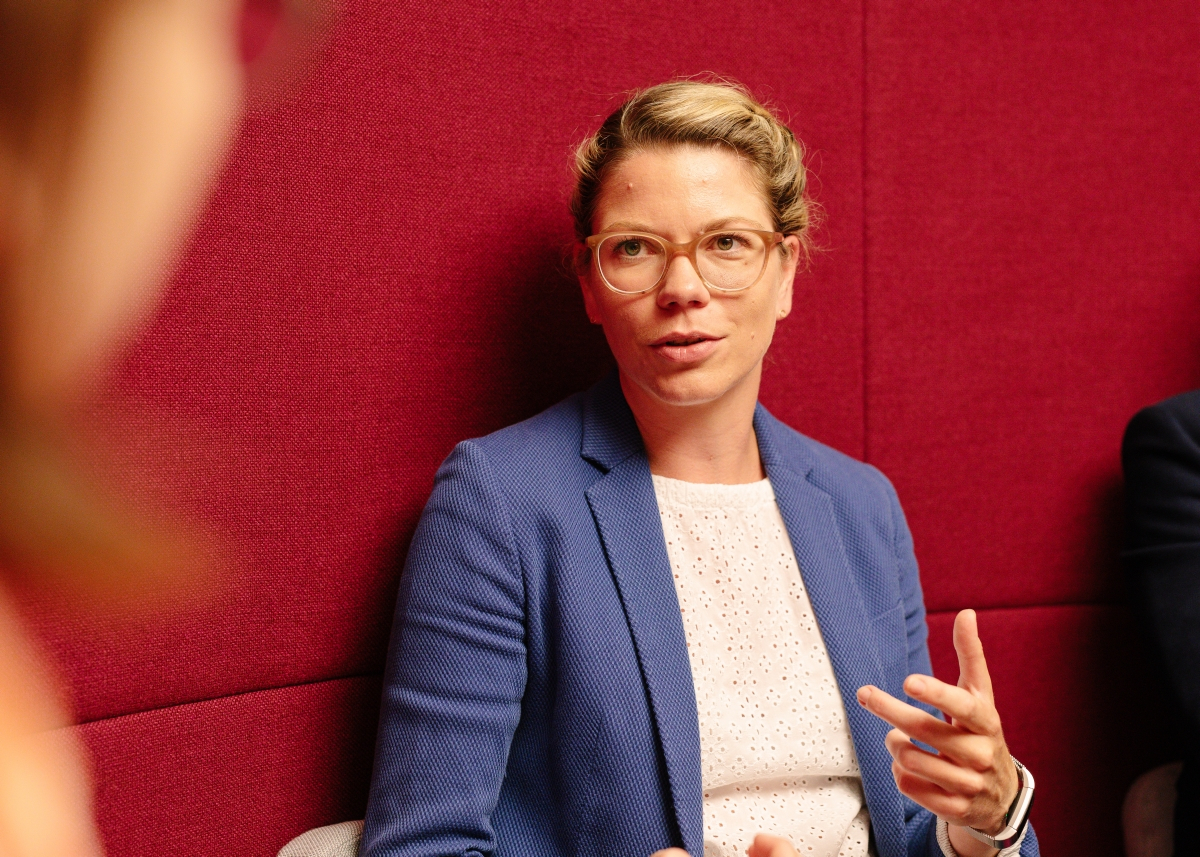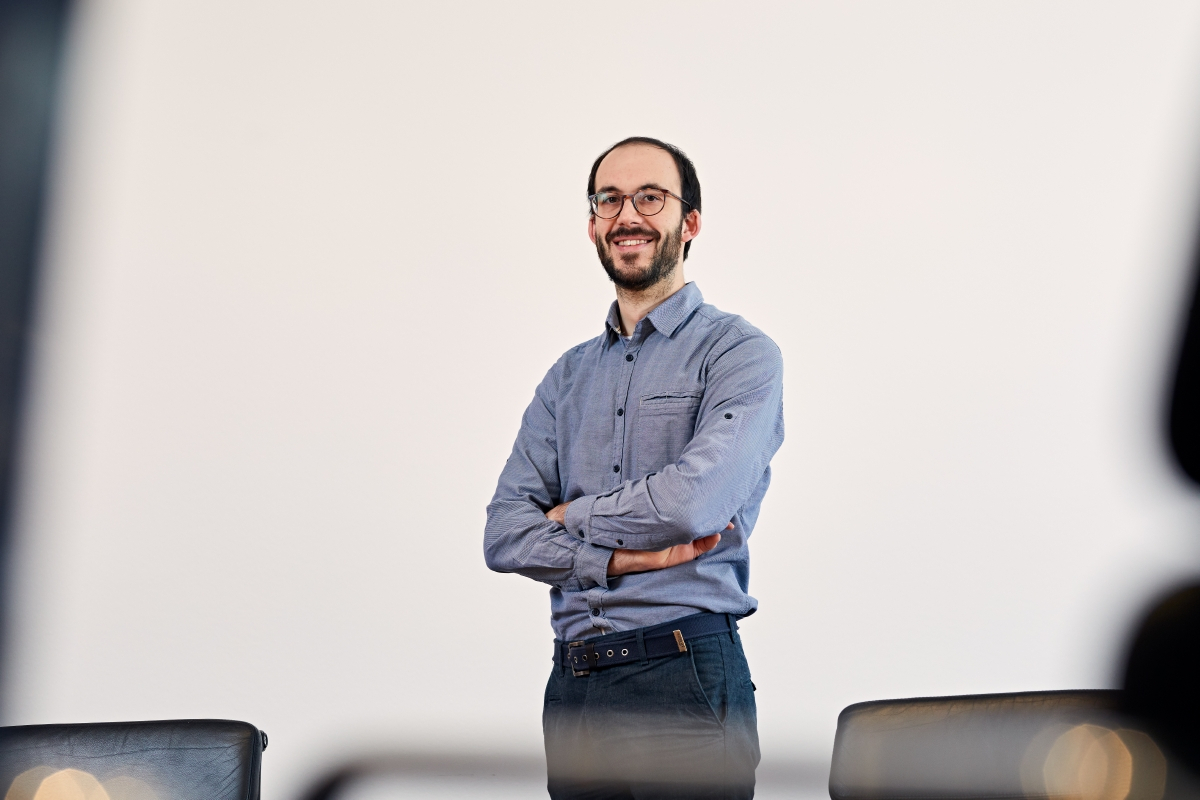
NEXT: Experimental space for science
In the following interview, Hanna Denecke, leader of the "Exploration" funding team, and Tobias Schönwitz, funding officer for the NEXT program, explain how we are paving the way for new topics and research methods under the NEXT funding framework.
Dr. Denecke, what does the "Exploration" profile area stand for?
Hanna Denecke: The Exploration profile area focuses on unconventional ideas and innovative research projects. The funding initiative is aimed at investigative and venturesome researchers who want to contribute to solving major science-driven challenges with unorthodox questions and experimental approaches. The focus is therefore on basic research – in all disciplines. A good example of how we want to pave the way for new topics and research methods is our NEXT funding framework.
What is behind NEXT?
Hanna Denecke: NEXT opens up an experimental space; for science as well as the Foundation itself. With one or two calls for proposals per year, we aim to take up topics and research approaches that, on the one hand, have a high degree of knowledge potential and relevance for the future, but, on the other hand, are not currently being pursued scientifically – or insufficiently so. In keeping with the title NEXT, the focus is therefore on what should be looked at next from a thematic point of view. However, we also want to develop and test new funding formats, selection processes and procedures for identifying topics.
And how should these topic areas or research areas be identified?
Hanna Denecke: From the very outset, we want to identify and develop the topics together and in close dialog with the scientific community. To this end, we hold discussion rounds with experts and want to find out which question should be addressed next in a particular topic area in order to develop the research field further. However, the respondents should think beyond their own field of research; it is not about incremental further research on a topic they are already working on. Rather, we want to shift focus onto restructuring certain research areas or enabling completely new perspectives on certain research fields and opening up completely new lines of research.

Dr. Hanna Denecke has headed the Exploration profile area since 2021.
Tobias Schönwitz: We are also developing the new "science workshop" format. The science workshops are intended to facilitate an intensive interactive exchange with and between scientists.
This is different from what we are used to at classic conferences, where the whole thing is often based on presentation and there is less space for discussion. We held a first pilot event at the end of 2021 to try out the format, and one participant called it an "anti-conference" in which everyone could talk openly about their difficulties, misgivings and also ideas. This encourages us very much to continue thinking in this direction.
[...] one participant called it an "anti-conference" where everyone could talk openly about their difficulties, doubts and also ideas.
How are ideas for new research fields generated in the context of NEXT?
Tobias Schönwitz: We want to offer researchers a protected space that allows them to shift focus onto the difficulties and potentials of a thematic area. In such a spirit of cooperation, we can "think the future" of topics together, because we can talk openly about where things are getting stuck, where knowledge is still lacking or where there is resistance to innovative ideas. This gives us the most interesting starting points for new funding topics. The feedback from the participants was consistently positive: They found it highly productive, and they also found the atmosphere refreshingly stimulating.
Hanna Denecke: For us, these discussions are also important because of the many topics left unresearched due to stubborn resistance in the field. In some scientific communities, path dependencies have become firmly entrenched or new topics are hardly enforceable due to the prevailing structures. Where there are such hurdles, we want to support researchers in overcoming them and entering new territory.
We want to offer researchers a protected space that allows them to shift focus onto the difficulties and potentials of a thematic area.
And what topics have you identified so far in the context of NEXT?
Hanna Denecke: As a result of the first workshop discussion, we are currently working on a call for proposals in the field of "Neuromorphic Computing". And following an expert discussion with several legal scholars last fall, in March we publicly launched the call for proposals "NEXT - Law between Normativity and Reality", with which we intend to lend impetus to jurisprudence in Germany.

Dr. Tobias Schönwitz oversees the NEXT funding umbrella.
And what topics have you identified so far in the context of NEXT?
Hanna Denecke: As a result of the first workshop discussion, we are currently working on a call for proposals in the field of "Neuromorphic Computing". And following an expert discussion with several legal scholars last fall, in March we publicly launched the call for proposals "NEXT - Law between Normativity and Reality", with which we intend to lend impetus to jurisprudence in Germany.
What is the aim of the call "NEXT - Law between Normativity and Reality"?
Tobias Schönwitz: We think that much more attention should be paid to linking legal normativity with so-called real-world aspects. Especially here in Germany, there is a very strong field of so-called dogmatics in jurisprudence. This field is primarily concerned with the normative dimension of law, i.e., with the systematic study of applicable norms or laws.
Changing reality affects the normative dimension of law, also causing it to change [...]
The flip side of this strong focus is that the linkage to so-called real science aspects is less strong. One example: In the course of rapidly progressing digitalization and artificial intelligence, categories such as the stakeholders and the question of legal responsibility will in future have to be considered differently than our current legal concepts and systematics allow. Changing reality affects the normative dimension of law, also causing it to change and, in turn, reflect back on reality. Investigating such linkages between normativity and reality is precisely what we wish to support in this call for proposals.
Who can apply under this call?
Tobias Schönwitz: Project teams from Germany comprising PhD upwards. The main applicant should come from the legal sciences, but we are very open to interdisciplinary projects here. International partnerships are of course always possible. The deadline for applications is July 5, 2022.
And what's next for NEXT?
Hanna Denecke: In addition to the planned call for proposals on "Neuromorphic Computing", finding topics for NEXT is an ongoing process.
By encouraging unconventional research, which is by definition more risk-laden, there is a greater danger of failure.
The Exploration profile area also gives the Foundation the opportunity to experiment: We are aware that not every research topic we will support will be viable in the end. Of course, there is a greater risk involved when supporting unconventional topics and methods – and that's okay. The grantees under this funding initiative as well as the Foundation are going into it with their eyes open.
By the way, we are also dedicating a special theme week to failure in our symposium program. This will give participants the chance to specifically address what it actually means to fail in the various scientific disciplines and how we should deal with it.
